A virtuoso dies young, inspiring his nephew to carry on the legacy
| Published: 03-15-2023 6:36 PM |
Roger Peltzman has a close, personal relationship with an uncle who was murdered by the Nazis nearly 80 years ago.
Of course, at 61, Peltzman never met Norbert Stern, but he knows the story and the man’s worth to his own development as a master piano player.
Stern and his family fled the Nazis in 1933, settling in Belgium. A virtuoso as a teenager throughout the ’30s, Stern was perhaps the best pianist in the whole country.
In fact, the music that flowed from his fingers caught the attention of the entire city of Brussels. Even the Queen enjoyed Stern’s playing, enough to make him her ward.
Norbert Stern, who was Jewish, died at the death camp at Auschwitz in 1944. He was 21 years old. Since then, Peltzman has played in front of packed audiences, always with Uncle Norbert close by.
With impactful subplots everywhere during these stunning events, Peltzman’s relationship with his late uncle is the central element showcased in his film, “Dedication,” one of 11 independent movies competing at the 15th New Hampshire Jewish Film Festival from March 16 to March 26.
Indy films will be shown in Bedford, Hooksett, Keene, Manchester, Portsmouth and in Concord at the Red River Theatre.
Peltzman, a resident of New York City, is a college music professor who gives private lessons and is a virtuoso as well, having played at Weill Hall at Carnegie Hall and the Brooklyn Academy of Music.
Article continues after...
Yesterday's Most Read Articles
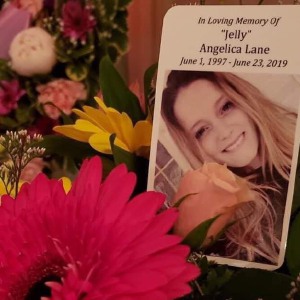 Mother of two convicted of negligent homicide in fatal Loudon crash released on parole
Mother of two convicted of negligent homicide in fatal Loudon crash released on parole
 Students’ first glimpse of new Allenstown school draws awe
Students’ first glimpse of new Allenstown school draws awe
 Pay-by-bag works for most communities, but not Hopkinton
Pay-by-bag works for most communities, but not Hopkinton
 ‘Bridging the gap’: Phenix Hall pitch to soften downtown height rules moves forward
‘Bridging the gap’: Phenix Hall pitch to soften downtown height rules moves forward
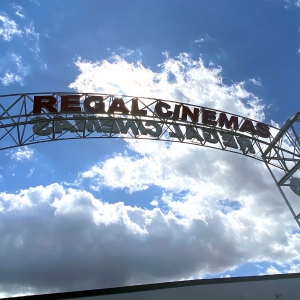 Regal Theater in Concord is closing Thursday
Regal Theater in Concord is closing Thursday
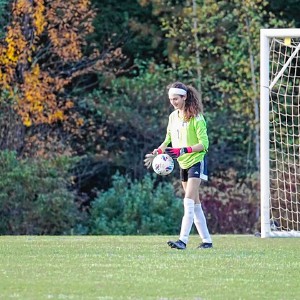 ‘We’re just kids’: As lawmakers debate transgender athlete ban, some youth fear a future on the sidelines
‘We’re just kids’: As lawmakers debate transgender athlete ban, some youth fear a future on the sidelines
And now, after completing his movie last year, he’s a filmmaker, too. He said that this was a good time to release something of this nature, and has dates booked for Europe to show and tell.
“Now, at this time,” Peltzman said, “with antisemitism and the fact that all Holocaust survivors are dying, someone must go out there to talk about it. It’s the next generation.”
Peltzman’s film will be shown on March 26 at 3:30 p.m., the final show on the final day. He often appears in person for an impromptu Q&A after the screening, and is planning such an appearance at Red River too.
As the story unfolds, you’ll hear about a real-life drama that puts any Hollywood script to shame. Norbert’s parents died in the camp as well, taken to Auschwitz with their son after the Nazis had burst through the door at their hiding spot, inside a neighbor’s attic.
During the chaos, Norbert’s sister, Beatrice Stern, then 17, jumped from a bathroom window and shivered through the night on the snow-covered roof, later escaping the compound and then surviving by hiding in a convent, dressed as a nun.
There’s a photo of Beatrice in her nun’s clothing, framed in Peltzman’s home in the Washington Heights section of Manhattan. Beatrice escaped to England, came to the United States, married a pharmacist and had three sons, including Roger. She died 13 years ago, at age 83.
She spoke openly about being a young Jewish woman running for her life from the Nazis. That’s how Peltzman heard the Anne Frank-like story, with its sense of doom and courage and waste.
“She didn’t mind talking about it,” Peltzman said, “as long as you did not get into details about what happened at the camps, how it might have happened to her family. As I got interested, she became more and more uncomfortable.”
He described Beatrice as cultured, smart, curious and funny. He also said she had a sharp radar system, capable of sizing people up. An “incredible BS detector,” Peltzman called it.
He said she got her Master’s in her 60s from Fordham University and devoured books in English and French. Parkinson’s Disease had kept her bedridden for the last few years of her life.
By then, Peltzman had already started identifying with his talented uncle, trying to feel what Norbert felt while playing. He knew Norbert’s talent was special. Extra-special, really. As Peltzman grew into the role of virtuoso, his uncle began to take on greater meaning to him.
“I didn’t think about it too much until I started arriving at the virtuoso level,” Peltzman said. “I worked hard with my last teacher as an adult and we accomplished some things and then my uncle came into my thoughts. I thought I was good enough to relate to him.”
He’s honoring Uncle Norbert on his current tour, with stories, photos and some gentle ballads, reflecting the somber mood the story creates.
But few things could compare to the charge Peltzman felt 13 years ago, once he got a call from a woman in Brussels named Ghislaine Bomhals.
She had seen Beatrice’s obituary in Brussels and wondered if the Peltzmans she had tracked down were related to her. She wanted them to know that she lived near the people who had hidden the Stern family in their attic for two years, and that she befriended Beatrice. In fact, it was Bomhals’s father who later helped Beatrice escape, securing nun’s clothing and a spot at a convent. (She has that same photo Peltzman displays proudly, of Beatrice dressed as a nun).
Bomhals also grew close to Beatrice’s brother, Norbert. So close, in fact, that she risked her life to sneak Norbert into her living room so he could practice on her Steinway piano.
Now she was inviting Peltzman to her home in Belgium, suggesting he’d like to see the old neighborhood, where history took place. Maybe he could sit at the piano that had meant so much to his uncle 65 years earlier.
Bomhals was a towering figure in Uncle Norbert’s life, and now she was a towering figure in Peltzman’s as well. She thumbed her nose at the Nazis to help a gifted artist reach his potential. Peltzman visited and played on that very same piano, with those same keys that Norbert had turned into magic.
Bomhals turned the pages of sheet music for Peltzman that day 13 years ago. Just like she had for his uncle while the world was going mad around her.
“I was definitely intimidated by playing for (Bomhals),” Peltzman said. “But I soldiered on, and the sensation of touching the same keys Norbert did was pretty wonderful. It was almost as if I were going back in time. A physical connection to Norbert.”
Norbert had become a giant in Peltzman’s world, inspiring him to play his own interpretation of Chopin while recording a CD at the Brussels Conservatory of Music. That’s where his uncle had performed and been honored, and it signified yet another link to Norbert that excited Peltzman as his personal connection to his uncle grew over the years.
” I definitely felt or imagined I felt Norbert’s presence at the Conservatory,” Peltzman said. “I know I was truly inspired there. Every take, I tried something different.”
Peltzman also recorded a CD on the same stage in Brussels in which Norbert had won prestigious competitions. He then staged a CD-release concert in Belgium, on the site from which his family had been sent to their deaths.
During his trip to visit Bomhals, “She pointed and we go to the backyard and see the roof where my mom was hiding,” Peltzman said.
Her escape gave Peltzman the opportunity to spread his own wings. His bond with someone he’d never met who died 15 years earlier was documented in the New York Times.
“It’s very weird,” said Peltzman, referring to the consequences had his mother not escaped. “It changes your whole kind of life, knowing this.”
He’s got shows for “Dedication” booked for London and Hamberg. He’ll be back home in New York City to show the film to his home crowd, perhaps in the fall.
The movie shows Peltzman dressed like a Northeast snowbird visiting Florida, with an untucked button-down shirt and shorts, blue socks with a cartoonish-looking red figure on them and sneakers.
He stands in front of a piano and explains what happened to his family and the profound impact Norbert would eventually have on him. He plays softly in front of a big screen, which fills with black-and-white photos throughout the presentation.
Photos of his doomed grandparents and uncle, maps showing the Sterns’s journey from Berlin to Belgium to Auschwitz in Poland, endless lines of prisoners within the walls of Auschwitz, barbed-wire fencing and Beatrice, in recent years and what she looked like back then. (Yes, the photo of a Jewish woman dressed as a nun to save her life is part of the show.)
Pelztman also found a museum with names and short bios on file of prisoners who were shipped like cattle from Belgium. He typed in ‘Norbert Stern’ and was stunned to find an ID card showing a young man, dressed sharply in suit and tie, head tilted slightly, with dark hair and a hint of a smile.
The photo obviously was snapped during better times, but, like a cruel joke, it was included in the Nazi’s registration process to ID prisoners, stating that Norbert had come in on Transport XXIII. His number was 705, tattooed on his arm forever. He died in 1944, unaware that he would touch people during his very short life.
“I feel like I have a relationship with this young virtuoso,” Peltzman said. “Now I think about him each time I sit at a piano.”


 NH Furniture Masters present new member show this spring
NH Furniture Masters present new member show this spring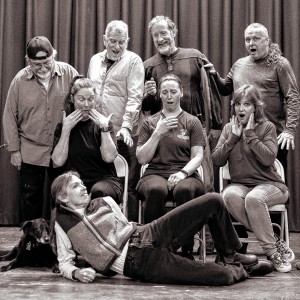 Sunapee Kearsarge Intercommunity Theater presents ‘Olympus On My Mind’ in April
Sunapee Kearsarge Intercommunity Theater presents ‘Olympus On My Mind’ in April Vintage Views: The greatest factory that never was
Vintage Views: The greatest factory that never was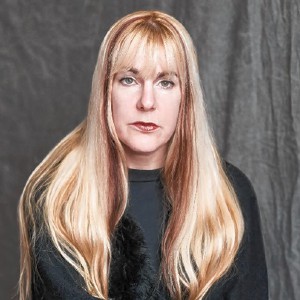 Inspired by Robert Frost, New Hampshire Poet Laureate Jennifer Militello has achieved her childhood dreams
Inspired by Robert Frost, New Hampshire Poet Laureate Jennifer Militello has achieved her childhood dreams
